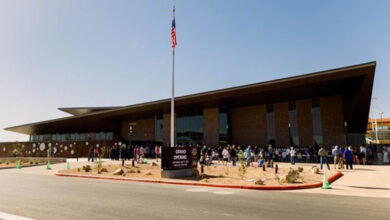
Eller College of Management Announces Mini-MBA in Rural Healthcare
Around 60 million Americans live in rural communities, but with unique challenges and workforce shortages, rural healthcare is struggling. To respond to this growing social issue, the Eller College of Management’s Executive Education program and Dignity Health Global Education (DHGE) are partnering to empower healthcare professionals through an accelerated rural healthcare business program.
“It’s no secret that the continuing downward pressure of cost for healthcare organizations weighs heavier on rural organizations than urban ones,” says Joe Carella, assistant dean of Eller Executive Education. “The limited ability of rural healthcare providers to cross-subsidize, combined with the fact that they have to navigate a payer mix that is composed of a higher percentage of Medicare, means that it’s more difficult for rural healthcare providers to operate profitably. What follows is that, tragically, an increasing number of rural providers have to shut their doors to patients who might already be struggling with accessibility and relying on them.”
In fact, according to the North Carolina Rural Health Research Program, 136 rural hospitals have closed between January 2010 and May 2021. Traditional healthcare education often passively and actively contributes to the healthcare workforce shortages in rural areas.
“Many institutions of higher learning are concentrated in urban regions, naturally limiting the graduate talent pool of rural healthcare organizations,” says Nicole DeJong, Director of Learning Experience Design at Dignity Health Global Education (DHGE). “We have consulted rural healthcare professionals who reported actively being discouraged from entering rural communities during their education. We believe that instead, education should empower rural healthcare professionals through skills-based learning so that they can make an impact and maximize positive outcomes in the communities they serve.”
“DHGE was founded on the very idea of improving access to the best-in-class healthcare education,” says Andrew Malley, CEO of DHGE. “We provide skills-based programs from great academic partners that are fully online and asynchronous. This means healthcare professionals don’t have to leave their area to attend classes, and they’re not reliant on high-bandwidth internet access at a certain time of the day to attend an online lecture. They can study whenever, wherever, without having to opt for a low-quality option — this program was in fact modeled after our existing Mini-MBA in Healthcare where students reported feeling that they were truly being taught by the best of the best.”
The Mini-MBA in Rural Healthcare builds upon groundbreaking and innovative approaches from our Mini-MBA, such as insights from Olympic and Super-Bowl winning athletes on performance management and a star faculty of 11 academic experts from the University of Arizona’s Eller Executive Education and Eller College of Management, while carefully reexamining topics relating to healthcare business administration through a rural lens. Rural healthcare experts have been included in the program creation to ensure that pressing issues in non-urban healthcare are addressed. Some of these issues include:
- Talent acquisition and retention
- Stakeholder and community engagement
- Communicating with the media
- Grant Writing and the reality of healthcare economics in the rural setting
- Personal boundaries in small communities
- Persevering under pressure
“We know that rural areas are highly varied, so we’re not trying to present a one-size-fits-all solution,” says Carella. “Instead, we’re providing rural healthcare professionals with a framework that will help them break down the complex issues in their region and leverage their communities to create innovative solutions. Healthcare is not only full of unique challenges, but also unique opportunities for growth and development are exponentially higher. Rural healthcare professionals get to take on multi-functional roles and tackle diverse challenges—broad knowledge in healthcare business administration along with topics like community engagement and talent acquisition can be a true game changer.”





